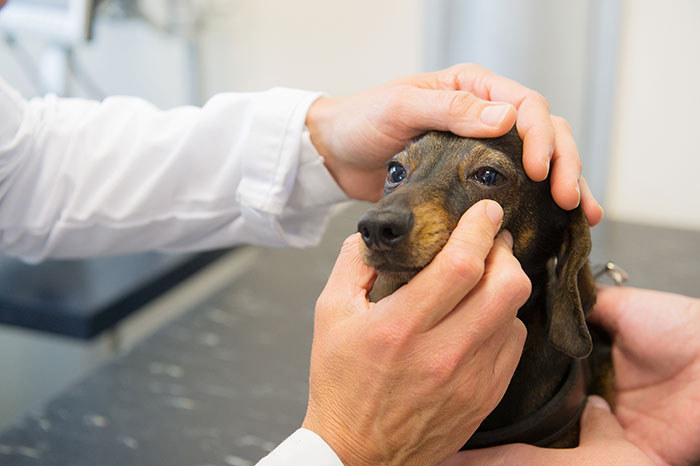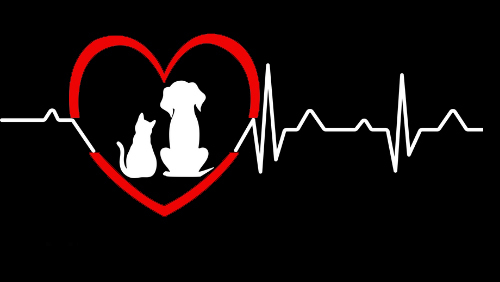Your pet’s vision is important for navigation, mobility and safety. Our veterinarians are trained to deal with routine eye care as a part of your pet’s regular yearly check-up, and will assist with unexpected medical or surgical emergencies that can occur to the eye and eyelids.

There are a series of ophthalmologic conditions that can benefit from our examination and diagnostic procedures, which include:
- Schirmer Tear Testing
- Direct Ophthalmoscopy
- Tonometry
- Fluorescein Staining
- Ocular/Adenexal sampling (swabs and biopsy)
More advanced testing may be recommended by your veterinarian. In these cases, your veterinarian will arrange for a referral to an ophthalmologist for more specialized testing, such as:
- Slit Lamp Bimicroscopy
- CT and MRI
- Breed Certification Examinations for purebred dogs
- ERG (Electroretinogram)
When does my pet need an eye exam?
Like their human companions, pets can experience eye diseases and sight challenges. Their eye care needs are best served by a specialist. Our in-house ophthalmologist works with your pets in preventative and reactive procedures, treatments and surgeries so that your pets can still live their lives as normal as possible.
Some pets have pre-existing conditions that expose them to specific challenges with their eyes. Others develop along the way. Please engage your veterinarian in a discussion about your pet’s eye health to determine the best way to maintain their vision and quality of life.
Below are some examples of eye conditions that could be helped or prevented with a regular checkup with your pets ophthalmologist:
Diseases in dogs
- Collie Eye Disease
- Pannus
- PRA
- Retinal Dysplasia
- Cherry Eye
Diseases in cats
- Glaucoma
- Herpes Virus
- Iris Melanoma
- Uveitis
During your annual pet checkups, your vet will complete a physical exam and any necessary ophthalmic tests to assess your pet’s eye health. Your veterinarian will also refer to your pet’s health history to determine your need for an ophthalmologist.
Pet Eyes – Signs that Something is Wrong
- A visible third eyelid
- Excessive discharges of the eyes
- Redness and/or squinting
- Discolouration or bleeding
- Cloudy eyes
- Abnormal eye movements
- Film over eye
- Sunken skin
- Cross-eyed gaze
Some pets are more susceptible to eye problems than others.
Share your concerns with your vet and ask questions about your pet’s species’ history and whether there are steps you can take to prevent any eye disease your pet may be susceptible to.
If you maintain a health communicative relationship with your vet, you will keep your pet in his or her best health.

Follow Us!